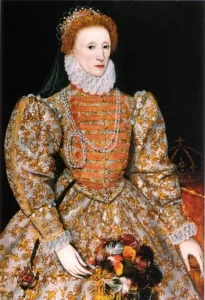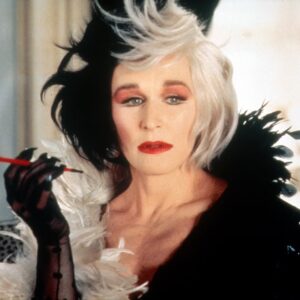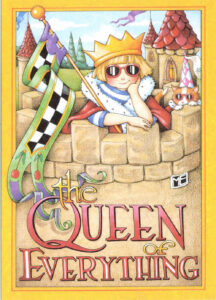The author of this poem is a fierce mom in Florida protecting her queer kids from legalized bigotry. She shared this poem in an email to me on the weekend of the inauguration, and has kindly permitted me to publish it here, without attribution to protect her kids’ privacy.
Why I Want to Resist
Why do you want to resist?
You, of all people?
You’re white,
From the more privileged class,
All these minorities are wanting to take away all our gold,
Is the message I heard from my dad growing up,
God rest his soul,
Banker of a third generation,
So why do I feel like all the lights are going out in the world?
They’re taking away our safe spaces.
Please don’t let them blow out our flames,
Goddard College, they accepted me there to pursue my MFA in Creative Writing,
Amongst all the cool intellectuals there,
I felt imposter syndrome,
Why did they accept me here?
We met at Fort Warden, a former military base in Port Townsend, Washington.
It was an eye-opening experience,
I fit in here.
I’d finally found my tribe.
Goddard closed last year.
The lights are going out,
Fort Warden announced they’re no longer hosting events there,
Another light went out.
Oh how I long to bum an American Spirit off a fellow classmate-writer,
Oh how I long to walk the foggy sidewalks,
As a distant ship sounds a melancholy foghorn.
Goddard College was a safe space,
Not only for queer people, but simply for an artist such as myself,
Born into a family in which I did not belong,
Why do I want to resist?
What forces are bringing darkness into my life?
Why do I want to resist?
What forces of evil and darkness
Want to put out my light?
You’re of a privileged upper class,
Why do you want to resist?
I want to resist. I need to resist.
How can I not resist?
The memories flash through my head like a slideshow of oppression,
Yes, me.
The memories flash through my mind like a slideshow of oppression,
The moment my baby girl was born into this world,
A tiny, precious doll,
A light entered my life, a light I thought could never be extinguished.
Precious baby girl; teasing, dyslexia,
Remove her from the public school system,
She has dyslexia,
She’ll never be able to read normally,
She’ll never be able to do math.
“That homeschooling is a bunch of bullshit,”
Were the words of Cruella de Vil,
My own narcissistic mother,
“You’re educationally neglecting her because the doesn’t know how to read.”
She’s a brilliant artist, mom,
Look at her now,
She’s a lesbian, mom.
When I left an abusive marriage
And you refused to help to the fullest capacity to which you were able with all your wealth,
Then no, we couldn’t afford fabric or clay
For her to make her art,
“You’re projecting oppression,”
Someone who’d once been a dear friend of mine
Told me when I dared speak out against the Monroe County Sheriff Department
On social media.
He refused to speak with me ever since,
He returned a bag of gifts I’d gotten him as a peace offering to the store Mother Earth.
He has friends who are cops,
All hail the men in blue,
All hail the enforcers of corrupt and unjust laws
In this Florida.
The dictators are taking their place in the Oval Office,
They wear their bigotry and hatred like a crown.
The slideshow of memories,
My firstborn child, my son,
I didn’t know about gender identity
I did not know
Until he told me at 18, mom do you love me?
Yes.
Do you love me mom?
Yes.
I bought a skirt,
I like to wear it in my room.
Accused of being transphobic,
My ignorance was bliss.
I learned, I educated myself,
My daughter is a lesbian.
I take them shopping,
I don’t care which department they buy their clothes from.
She wears his hand-me-downs.
I was asked once by someone looking at my children from a distance,
‘You have two boys?’
‘No, that one’s my daughter,’ I proudly replied.
I could give two shots
What anyone has to say about it.
Slideshow, my son is standing in the streets of our neighborhood
Between two deputies, a third looking on,
On a mental health call,
After he’d been left home with his abusive father,
Claire and I had been gone.
Why do I want to resist?
The slideshow in my mind,
My ray of sunshine is lying in the back of an ambulance,
I’m in front with the driver,
Half the motherfuckers won’t even pull over.
“That’s my baby girl lying in there.”
When I finally told them at the hospital, “she’s not pregnant, she doesn’t like boys.”
The slideshow in my head:
“Please, can you take the handcuffs off him?
He’s unarmed. He was just crying out for help.
Take the God damn handcuffs off my beautiful baby boy.”
Slideshow:
We’re at the ICU with Claire,
She didn’t know that OD’ing on Tylenol could be so serious,
Could cause her organs to shut down.
Jacob and I were texting, if our sunshine didn’t make it,
The Lord forbid, we were gonna’ protest
All over the streets,
Bail each other out of jail if we had to.
Slideshow of memories:
They put my child in the back of the squad car still in cuffs.
Would you want to resist if you were me?
Ask yourself this; how could I, in good conscience, do nothing?
I want to resist.
My two amazing kids were my only support
In leaving my marriage,
My two amazing kids who the world loves to hate,
My two amazing kids who saved their own mom’s life,
That’s why I will never stop resisting,
Because I love my two babies too much
And I love all the other kids like them,
Trying to make their way in this harsh, cruel world.



